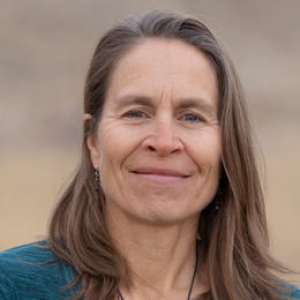Ph.D., Conservation Specialist, Gillmor Sanctuary
National Audubon Society
Bio:
Heidi Hoven has always followed her interest in salty and often muddy waters, having earned her B.S. in Natural Resources at the University of Rhode Island under the advisory of Dr. Frank Golet (co-author of “Classification of Wetlands and Deepwater Habitats of the United States”) and Drs. Marilyn Harlin and Paulette Peckol, who opened her world to marine ecological interactions and the incredible salt tolerance of plants and other organisms. Hoven went on to earn her M.S. and Ph.D. from the University of New Hampshire with a special interest in estuarine ecosystems and plant physiology. After moving to Utah, she worked in the private sector focusing on as many Great Salt Lake projects as she could, and then founded a non-profit research group to inform policy and safeguard wetland quality for the birds and other wildlife of the Lake. She developed strategies to improve managed, impounded wetlands of Great Salt Lake that are still used by managers today and spearheaded the development of a wildlife functional assessment of the northwest quadrant of Salt Lake City, which provided scientific rationale behind conservation of “the Natural Area” to buffer globally important wetlands of Great Salt Lake for birds.
Panel Discussion: On the Fly: The Unsung Insects Feeding Great Salt Lake Birds
Abstract: Brine flies may be the most important insect on the saline lakes corridor in the Western US, but they have flown under the radar, so to speak, and have not been a primary focus in most salt lake research. This panel will speak to the significance of the Ephydra species and their friends in the Great Salt Lake food chains. Brine flies have been under stress as salinity climbs in shrinking lakes, and the birds that eat them could also find themselves in peril. The panelists will broaden our view of the diversity of flies and their unique physiology. Also, how should we be monitoring them and how does this report on the health of the ecosystem? Join us as we investigate what we can do to protect brine flies and the birds they feed.

